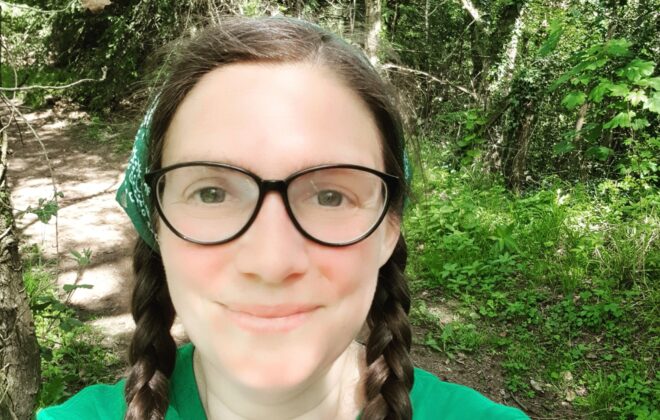Let’s talk about anti-depressants
I’ve posted a surveymonkey asking people about their use of anti-depressants on social media this week to find out how long people use them for and how they feel about it.
‘Anti-depressants – Have you taken them or are you taking them? Would you complete the anonymous survey in the link below as so many of my clients feel ashamed of taking them and I’d like to write a blog about people’s experiences. Thank you x’
36 people answered (thank you) and here’s what they said:
How long have you been taking anti-depressants for?


What made you start taking them?
- 25% said ‘anxiety’
- 17% said postnatal depression
- 14% said it was due either them self of a loved on suffering from another serious medical condition.
Other reasons included:
- The death of a loved on
- Litigation
- Long waiting times for NHS and lack of support
- work stress
- Bad relationships.
How did they help? How do they help? Why do you like them?
Here’s what people said;
- ‘By feeling more balanced and less panicky.more able to function without fear. Like ?not sure would say like but appreciate quality of life’
- ‘Helped me to keep calm and feel less anxious’
- ‘They have helped me feel like my self, the happiest in years. They have stopped me crying all the time 😂’
- ‘I have always found that they give me a little help to get me through rough times. Without them I wouldn’t get better. I’ve tried managing on my own when things are bad but struggle so much.’
- ‘They saved my life!’
- ‘I found them to be a big help at the time. They took ‘the edge off’ for me to find the strength to leave the house’
- ‘They took the edge off the symptoms so I was able to function again’
- ‘They helped settle my racing thoughts so I worried less about doing things and going places. They make my brain feel how I think it should have been for my whole life’
- ‘My mood lifted, and felt more stable’
- ‘They made me much happier but also masked a lot too’
- ‘They reduce the grey clouds I seem to feel in my head. I get a gentle lift to my spirits. I am also prone to morbid fantasies if I don’t take them’
- ‘Mood stability’
- ‘Everyday activities are more manageable, feel more able to cope with life’
However, 2 people also commented on the negative side effects, 3 people mentioned how they took away all emotions and one person said they resented having to take them.
What (if any) are the downsides to taking them?
People said that they felt ashamed about taking them, others said they got frustrated by how long they took to work. 3 people said they had no side effects. Others said:
- ‘They affected my ‘morning glory’ etc, one of my few pleasures.’
- ‘a strange tingling all over’
- ‘losing emotional response to things i would normally find sad or happy or angry’
- ‘Weight gain, feeling spaced out’
- ‘No deep lows but also no highs. Flat. Not able to experience positive feelings fully, including orgasm’
- ‘I’m tired all the time and constantly yawn.’
- ‘The feeling of wandering around like a zombie. Not feeling either happy or sad. Just an emotionless being’
- ‘hated them, very nauseous and actually felt worse’
- ‘Masking problems that were there in the first place’
- ‘Some have given me nasty side effects like diarrhoea and inability to orgasm. I found one that suits me. ‘
- ‘Initially the side effects, feeling sick, grinding my teeth was a weird one! Then feeling entirely dependent on them. I failed twice to come off them by doing it too quick and become really poorly and run down. Third time I reduced my dose gradually and no problems.’
- ‘I sometimes feel absent from reality but this is very infrequent. Also, I struggle to reach orgasm for months when my dose is increased’
- ‘Difficulties falling asleep, nausea, dizziness, something similar to panic attacks, lots and lots of side effects.’
- ‘Gained huge amount of weight’
- ‘Nausea initially’
- ‘Shakiness. Nausea’
- ‘Feel like I’m not being myself – am I fake because I need medication to be a brighter and more positive person?’
- ‘I would like to feel positive enough in myself to not need them’
How often do you tell people you take them?
This was a scaled response so people had to slide from ‘never’, through ‘sometimes’ to ‘always’. 45% of people talk to other people about taking anti-depressants.

What stops you talking about taking them?
44% of people said they didn’t talk about it for fear of stigma due to other people’s judgement. 30% said they do/did talk about it.
- ‘Nothing just sometimes not appropriate’
- ‘i used to feel ashamed (I’m not taking them at the moment) but now I just think I should talk about it …it’s nothing to feel ashamed of’
- ‘Lack of understanding of others’
- ‘I will only tell the people I’m close to. I believe it would show weakness if I told work people’
- ‘not of much interest to my friends’
- ‘Nothing. If it comes up in conversation I talk openly about it…….I don’t shout it from the rooftops, but I am not ashamed and tell people if they ask’
- ‘I usually do’
- ‘I don’t want my colleagues to know in case it affects their opinion of me as a professional. I’m open about it in my personal life though.’
- ‘Nothing. Mental health is an important thing to talk about’
- ‘Nothing really, I would always be honest’
- ‘I would only talk about them if the topic comes up. I have no problem talking about them but I wouldn’t bring up the subject’
- ‘Shame, judgement, misunderstanding.’
- ‘There is definitely a a negative connotation to taking them. I have felt judged for not being able to cope on my own. A sense of shame’
- ‘Nothing. It’s just medicine to help with the chemical imbalance in my brain.’
- ‘If it comes up in conversation I will always mention it. Initially you feel like a failure needing tablets to function but it is just one of those things. The more I talked about it the more I realised how many other people were on them as well’
- ‘Embarrassment’
- ‘I feel it wrongly gives people the impression that I cannot cope with life. I also feel that people view those who are open about antidepressants as attention seeking.’
- ‘Stigma perhaps, not something I would ever want to mention’
- ‘I only tell people I trust, some people would see it as a sign of weakness and hold it against you’
- ‘Embarrassment and shame. Makes me feel that I am somehow not a strong enough person as I need them’
- ‘I do talk about it if relevant/appropriate. I think it’s important to reduce stigma.’
Is there any advice you would give to someone who is considering taking them or has just started to take them?
33% of people said to give them a try but be patient as they take time to work and 19% said to combine anti-depressants with therapy and self-help such as exercise.
- ‘Mainly that it’s around quality of life and that by taking in the short term they can rebalance and allow life changes to be made to support anxiety /depression in the long term’
- ‘Go cautiously. Don’t rely solely on medication, continue to explore other avenues for coping such as time outdoors, diet, exercise, talking to friends and counselling’
- ‘To stick with it, they take time to get into your system. They do help but would recommend therapy or counselling alongside them.’
- ‘They do not work straight away. Give them time. You can have side effects at the begining but they won’t last long. If you find the side effects are making you worse then go back to the doctor and try and alternative. Don’t ever feel like a failure if you need a little help. If anything you are stronger than you think for admitting that you need some help’
- ‘you’re thinking of taking them then think of them as if you’re taking paracetamol for a headache. If you’ve started taking them then stick with it for at least 4 weeks. They take time to work. You may also need to consider an increase in the future and if you do it’s okay!’
- ‘Take them at night’
- ‘There is no shame in taking them. Mental illness needs treatment in the same way as physical illness does. They may help you to feel so much better that you can regain control of your life.’
- ‘Trust your GPs advice. Seek out other therapies. Talk to friends, family and colleagues. If they are not working talk to GP about other medications. Don’t feel like you’re the only one going through it’
- ‘Don’t expect miracles. It will take time to find one that suits you.’
- ‘Know there is more than one type, make sure you work with your Dr to find the correct fit’
- ‘Make you feel better 100% but have a look at other parts of your life, and BE HONEST with it.. Is this particular thing or situation making me happy/sad’
- ‘There really isn’t anything to be ashamed of, the way I look at it is that you would take tablets to help with physical problems so why is this any different.’
- ‘Stick with it. Can be tough at first but enjoy the benefits when they come!’
- ‘You are not a failure for needing them. The first 2 weeks is the worst but it soon passes. Be open and honest, talk about it because it helps. Not everyone will understand but it is hard for someone to know what it is like to struggle with mental health if they haven’t themselves. Be understanding towards them in that instance. Get up every morning and keep going. And don’t worry if you are in them for years. It’s not always a quick fix.’
- ‘If you had an infection you would take antibiotics, therefore if you have a mental health issue take the appropriate medication if recommended. I think it’s also important to have other therapies running alongside the anti depressant. Do not be afraid to discuss your concerns with the prescriber, do not be afraid to find the right combination of therapies and if it is not working for you’
- ‘It does not make you an emotionless zombie. It also does not fix everything. Taking them has made me feel that life is manageable and that I am not overwhelmed by my emotions. Taking them is also not an automatic life-sentence to a prescription. If they are an option, there is no shame in accepting the help they provide.’
- ‘I have stopped taking them as I had a bad experience with them. I feel like there are other ways to manage PND and Anxiety. Due to the side effects, I felt like they were not worth taking.’
- ‘Keep with it as it takes a while to fully kick in, and don’t stop taking them because you feel better! I was on and off every winter for a number of years before my doctor insisted I stay on them for a full 12 months. It was the best advice as it was almost 10 years before I had to return to them after that.’
- ‘Take them alongside helpful therapy so you don’t feel dependent on them, also not to feel ashamed because it’s more common than you think and in the world we live in today it’s a wonder that not everyone is having to take them.’
- ‘Give them a try. You’re not going to get addicted, and it’s not a sign of weakness to ask for or receive external help. I’ve heard that the worse that first month is corresponds to how well they’ll affect you afterwards, so don’t worry too much about all the initial side effects, just ride them out.’
Is there anything else you would like to add?
- ‘get rid of the shame!!!’
- ‘Not all anti depressants are the same’
- ‘There is no shame in taking anti-depressants but you can’t help feel that you get stereo-typed’
- ‘When you talk openly about it you realise how many people who you never thought would take them are actually on it. I used to think how other people coped so well and I couldn’t when in actual fact they’d been in my position’
- ‘After 4 years I was well enough to stop taking them. Been off them for three years now.’
- ‘I would like the nhs to be better educated in their use and more flexible in their general treatment and diagnosis of depression.’
- ‘Be proud. You are who you are.’
- ‘I think it’s important to not just take a quick fix pill but to develop other strategies too. Thank you for the interest and waiting to do something about the stigma.’
- ‘I have tried four different anti-depressants and only one has suited me. One not working does not mean none of them will work.’
- ‘There isn’t much support out there regarding antidepressants, depression, anxiety etc. I feel like medication is prescribed easily, without the need to follow up on how the patients are doing, how the medication is working etc.’
- ‘Please don’t feel shame/guilt or that you shouldn’t need them. It is a chemical imbalance, just like diabetes..and no one thinks badly of diabetics taking insulin to correct their imbalance.’
- ‘Personally I hate feeling deficient but my husband says if you have a broken leg you need a cast. If you have broken chemicals take something to adjust’
- ‘Everyone deserves to be happy and it doesn’t matter if you need medication to help with that.’
- ‘There’s varying evidence and lots of reasons not to take them. And sometimes they are the one thing that makes a difference! Don’t let shame or stigma get in the way of you feeling better if that is the one thing that helps you.’
- ‘They have made a huge difference to my life and although I do get bad days, they are much less often and I feel able to accept them as just that, bad days, or even, very occasionally, weeks, but I know that I will come out of them and cope OK again. I also have had counselling which also helped me to understand my ‘triggers’ and if I may need a slightly higher strength or medication for a short time. I can also recognise when I can lessen the dose again. As my Doctor said, when I asked whether I should come off them, ‘If it ain’t broken, don’t fix it’.’
- ‘Do your own research and talk to your doctor about switching from one to the other if necessary.’
What struck me about the responses was how willing respondents were to share their experiences and support people they don’t even know.
Thank you to everyone who took part and I hope this helps reduce some of the stigma and shame around anti-depressants.
Julie
PS
The books below are ones which I recommend to people as they are so honest and accessible and are written by blokes which somehow feels crucial in this world where so few men and boys talk about their feelings and where their suicide rates are on the rise. I am a mother of sons, I’m glad there are men like this who can speak out, vulnerably.
If you enjoyed reading this please share it with friends. You might also be interested in talking to me about coaching , or maybe try some of my online courses (some are free), or treat yourself to a climate protecting pamper with vegan friendly, organic Tropic which supports the planting of forests and education in deprived areas.
Thanks for being here.
Julie
Tags In
Categories
- Be Here Now (110)
- Education (40)
- Endings (58)
- environment (96)
- Inspiration (111)
- Podcasts and videos (49)
- Psychology and Emotions (147)
- Relationships and Family (150)
- Spirituality (70)
- stories and poems (95)
- Thinking Differently (186)
- Uncategorized (8)
- Well-being (106)
- Women (80)
- Work (42)



